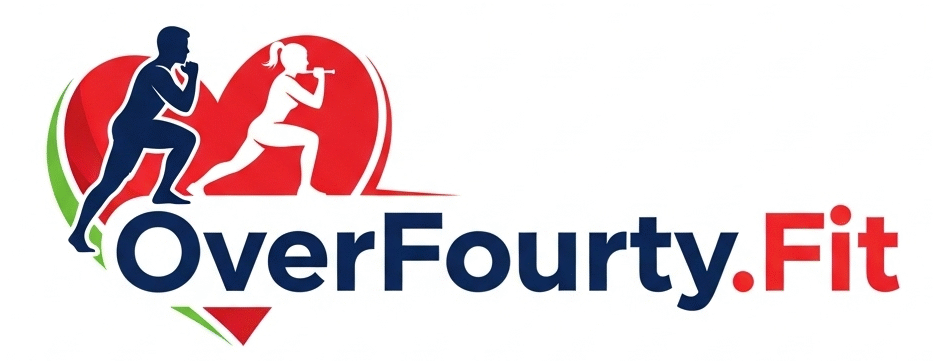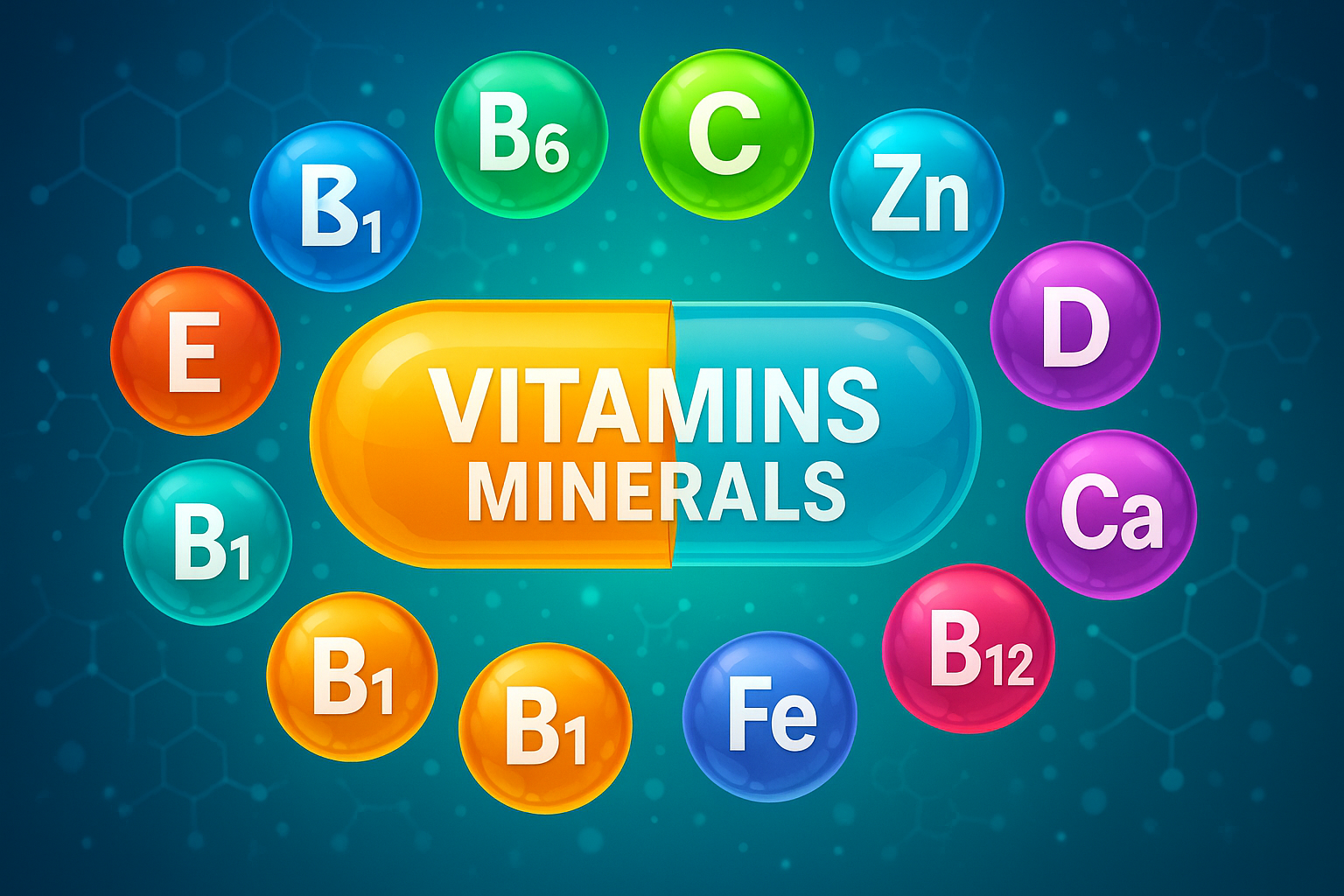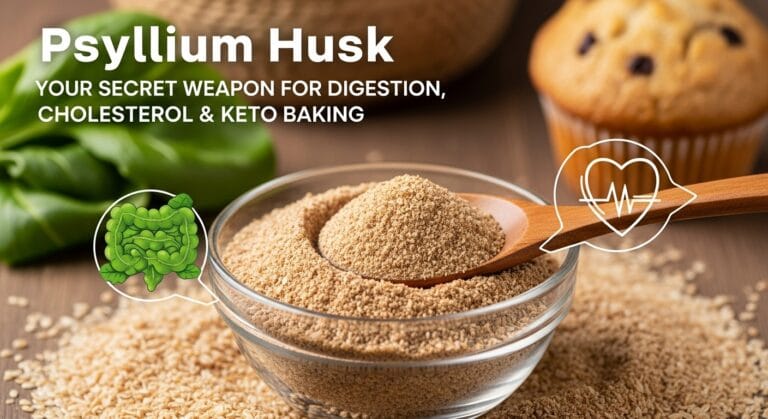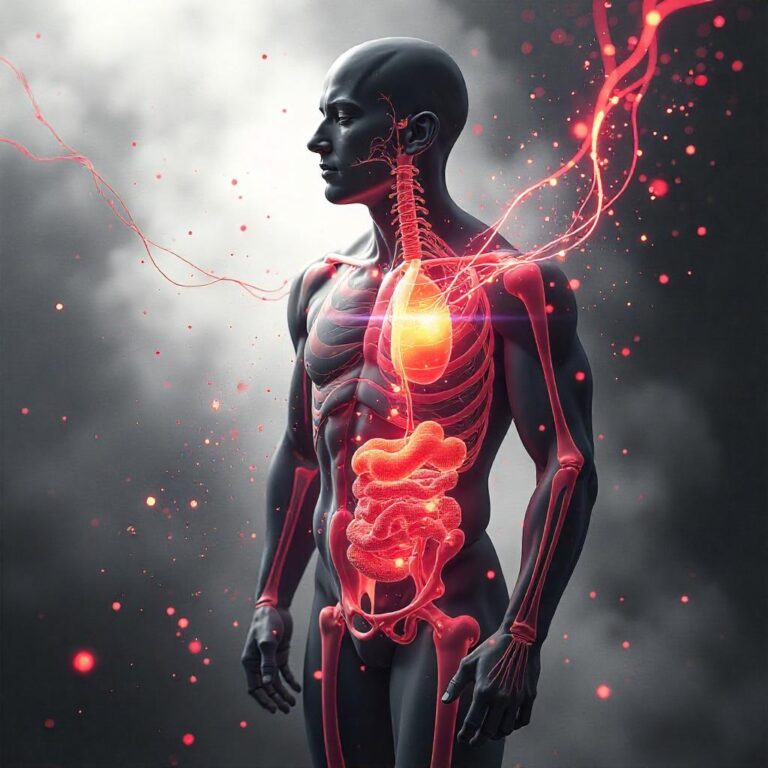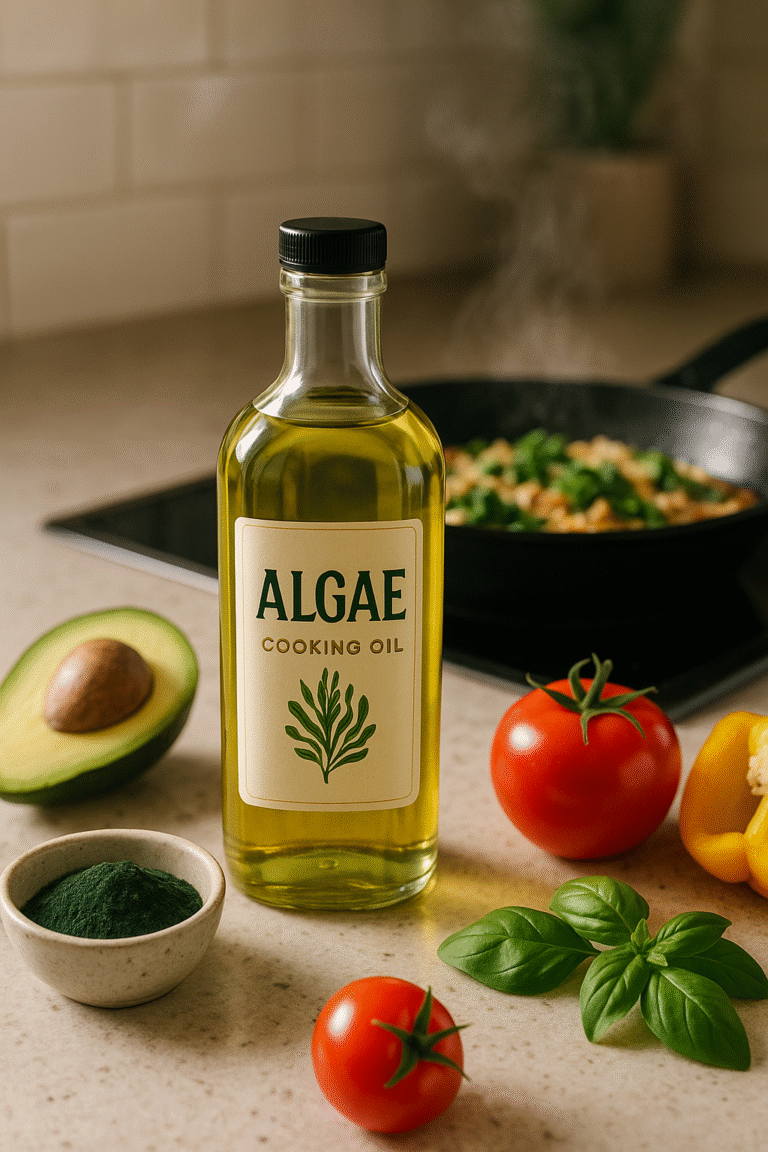Minerals or Vitamins: Which Does Your Body Need More Over Forty?
Your body needs both minerals and vitamins to function optimally, as they play unique and essential roles in health. While vitamins are organic compounds that support metabolism, immunity, and energy, minerals are inorganic elements crucial for bone health, nerve function, and more. Let’s dive deep into their differences, benefits, and how to get them from food.
Why Minerals or Vitamins Matter for Your Health
Minerals and vitamins are micronutrients, meaning your body needs them in small amounts, but they’re critical. A deficiency in either can lead to serious health issues, while the right balance can:
- Boost immunity
- Enhance energy levels
- Support brain function
- Strengthen bones and muscles
Minerals in Food: The Inorganic Powerhouses
Minerals come from soil and water, absorbed by plants or eaten by animals. They’re categorized into two groups:
- Macrominerals – Needed in larger amounts (e.g., calcium, magnesium, potassium).
- Trace Minerals – Needed in smaller amounts (e.g., iron, zinc, selenium).
Key Minerals and Their Benefits
| Mineral | Key Function | Best Food Sources |
|---|---|---|
| Calcium | Dairy, leafy greens, and almonds | Boosts immunity and wound healing |
| Iron | Supports blood oxygen transport | Red meat, spinach, lentils |
| Magnesium | Regulates nerve and muscle function | Oysters, chickpeas, and pumpkin seeds |
| Zinc | Nuts, seeds, and whole grains | Oysters, chickpeas, pumpkin seeds |
Minerals or Vitamins in Food: The Dynamic Duo
Vitamins are organic (made by plants or animals), while minerals are inorganic. They often work together—for example, vitamin D helps absorb calcium, and vitamin C increases iron absorption.
Types of Vitamins and Their Function
Vitamins are either fat-soluble (stored in fat) or water-soluble (need regular replenishment).
Fat-Soluble Vitamins
| Vitamin | Key Function | Best Food Sources |
|---|---|---|
| Vitamin A | Vision, immune health | Carrots, sweet potatoes, liver |
| Vitamin D | Bone health, immunity | Sunlight, fatty fish, fortified milk |
| Vitamin E | Antioxidant, skin health | Nuts, seeds, spinach |
| Vitamin K | Blood clotting, bone health | Kale, broccoli, fermented foods |
Water-Soluble Vitamins
| Vitamin | Key Function | Best Food Sources |
|---|---|---|
| Vitamin C | Immunity, collagen production | Citrus fruits, bell peppers, strawberries |
| B Vitamins | Energy production, brain function | Whole grains, eggs, lean meats |
How to Get Enough Minerals or Vitamins Naturally
The best way is through a balanced diet rich in whole foods:
- Fruits & Vegetables – Packed with vitamins and some minerals.
- Lean Proteins – Provide iron, zinc, and B vitamins.
- Dairy & Fortified Foods – Great for calcium and vitamin D.
- Nuts & Seeds – Loaded with magnesium, zinc, and vitamin E.
Should You Take Supplements?
Most people don’t need supplements if they eat a varied diet. However, some may benefit, such as:
- Vitamin D – If you get little sunlight.
- Iron – For women with heavy periods.
- B12 – For vegans/vegetarians.
Always consult a doctor before starting supplements—too much of certain vitamins/minerals can be harmful.
Final Thoughts About Minerals or Vitamins: Balance is Key
Minerals or vitamins? You need both! Focus on eating a colorful, nutrient-dense diet to cover your bases. If you suspect a deficiency, get tested and adjust your diet or supplementation accordingly.
FAQs About Minerals or Vitamins
What’s the best vitamin or mineral?
Most people don’t need supplements if they eat a varied diet. However, some may benefit, such as:
Vitamin D – If you get little sunlight.
Iron – For women with heavy periods.
B12 – For vegans/vegetarians.
What is the main difference between minerals and vitamins?
Vitamins are organic (made by plants or animals), while minerals are inorganic. They often work together—for example, vitamin D helps absorb calcium, and vitamin C increases iron absorption.
Can you get all vitamins and minerals from food alone?
Yes, with a well-planned diet, but some (like vitamin D) may require sunlight or supplements.
What’s the most common vitamin deficiency?
Vitamin D deficiency is widespread, especially in less sunny regions.
Are minerals more important than vitamins?
No, both are equally crucial—they work synergistically for optimal health.
